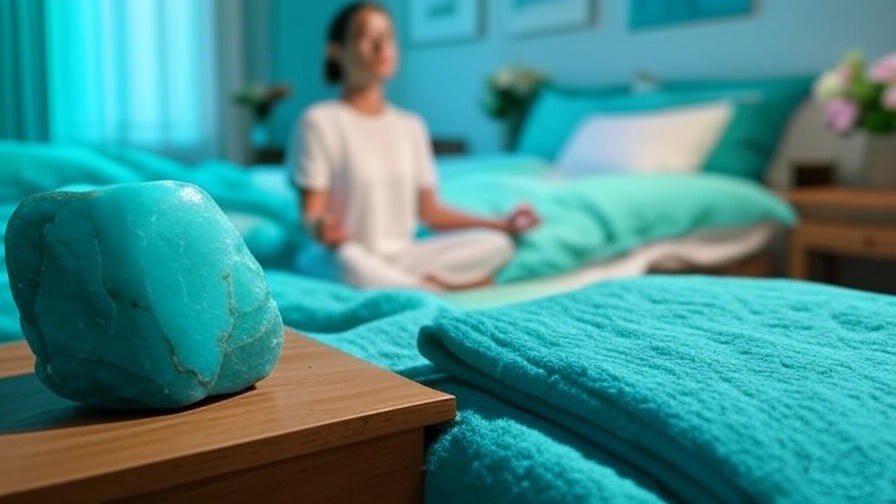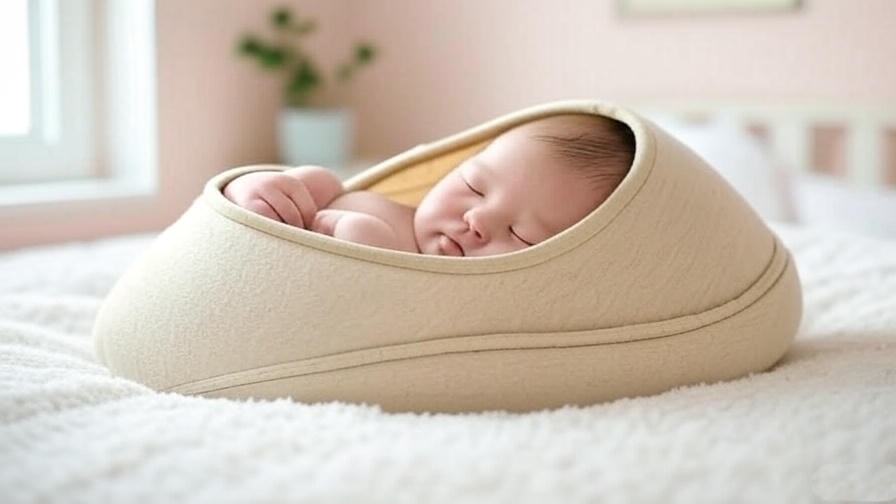Picture this: It’s 2 a.m., and your baby is fussing again, tossing restlessly in their crib. You’ve tried everything—white noise, a soothing lullaby, a gentle rock—but nothing seems to help them settle. As a parent, you know the heartbreak of watching your little one struggle to sleep, and the exhaustion that follows. Could the solution lie in something as simple as their sleepwear? Honest baby clothing organic cotton sleep solutions offer a game-changer for restful nights. Crafted with care, these garments prioritize your baby’s comfort, skin health, and the planet’s well-being. In this guide, we’ll explore why organic cotton sleepwear is essential for your child’s sleep, backed by expert insights and real parent experiences.
The Importance of Quality Sleep for Babies
Why Sleep Matters for Infant Development
Sleep is the cornerstone of a baby’s growth and well-being. During sleep, infants process sensory experiences, strengthen neural connections, and support physical development. According to the National Sleep Foundation, newborns need 14–17 hours of sleep daily, while infants aged 4–11 months require 12–15 hours. Quality sleep enhances cognitive development, emotional regulation, and immune function. Dr. Sarah Johnson, a pediatric sleep specialist, notes, “Consistent, restful sleep is critical for babies, as it directly impacts their mood, learning, and overall health.” Choosing the right sleepwear, like organic cotton pajamas, can make a significant difference.
Common Barriers to Restful Baby Sleep
Many factors disrupt infant sleep, including uncomfortable clothing, skin irritations, and improper temperature regulation. Synthetic fabrics like polyester can trap heat, causing discomfort, while non-organic cotton may contain pesticide residues that irritate sensitive skin. Overheating or feeling too cold can also wake babies frequently. These issues are especially problematic for infants with eczema or allergies, as harsh materials exacerbate skin sensitivities. By addressing these barriers with honest baby clothing organic cotton sleep solutions, parents can create a more comfortable sleep environment.
What Makes Honest Baby Clothing Different?
Defining “Honest” in Baby Clothing
Honest baby clothing stands out for its commitment to transparency, safety, and sustainability. Brands adhering to this ethos prioritize non-toxic, eco-friendly materials and ethical production. Certifications like the Global Organic Textile Standard (GOTS) and OEKO-TEX Standard 100 ensure that garments are free from harmful chemicals and produced sustainably. These standards guarantee that every step—from cotton farming to manufacturing—meets rigorous safety and environmental criteria. For parents, this means peace of mind knowing their baby’s sleepwear is safe and responsibly made.
The Power of Organic Cotton
Organic cotton is a natural, breathable fabric grown without synthetic pesticides or fertilizers. Unlike conventional cotton, which uses up to 16% of the world’s pesticides, organic cotton is gentler on both your baby’s skin and the environment. Its hypoallergenic properties reduce the risk of rashes and allergies, making it ideal for infants with sensitive skin. Dr. Emily Chen, a pediatric dermatologist, explains, “Organic cotton’s soft, chemical-free fibers minimize irritation, which is crucial for babies prone to eczema.” Additionally, organic cotton’s breathability helps regulate body temperature, ensuring your baby stays comfortable all night.
How Organic Cotton Sleepwear Enhances Baby Sleep
Comfort for Sensitive Skin

Babies have delicate skin that’s up to 30% thinner than adults’, making them more susceptible to irritation. Organic cotton sleepwear offers unparalleled softness, reducing friction and discomfort. For example, parent Jessica M. shared, “My son had persistent rashes until we switched to organic cotton pajamas. His skin cleared up, and he started sleeping longer stretches.” By eliminating exposure to harmful chemicals found in conventional fabrics, organic cotton creates a soothing sleep experience, especially for babies with eczema or allergies.
Temperature Regulation for Better Sleep
A key factor in restful sleep is maintaining an optimal body temperature. Organic cotton’s natural fibers allow air to circulate, preventing overheating—a common cause of nighttime waking. Unlike synthetic materials that trap heat, organic cotton wicks moisture and adapts to changing temperatures. This is particularly beneficial in varying climates. Tip: Layer organic cotton sleepwear with a lightweight organic cotton swaddle for newborns or a sleep sack for older infants to maintain comfort without overheating.
Durability and Long-Term Value
Organic cotton sleepwear is not only gentle but also durable. High-quality fibers withstand frequent washing without losing softness or shape, unlike cheaper synthetic alternatives that wear out quickly. While organic cotton may have a higher upfront cost, its longevity offers significant savings over time. For budget-conscious parents, this durability means fewer replacements, making it a cost-effective choice for sustainable parenting.
The Environmental and Ethical Impact of Choosing Organic Cotton
Sustainability in Baby Clothing
Choosing organic cotton sleepwear supports a healthier planet. According to the Textile Exchange, organic cotton farming uses 62% less energy and 91% less water than conventional cotton. It also avoids toxic pesticides, preserving soil health and biodiversity. By opting for honest baby clothing organic cotton sleep solutions, parents contribute to reducing the fashion industry’s environmental footprint, aligning with holistic well-being values.
Ethical Production Practices

Honest baby clothing brands prioritize ethical labor practices, ensuring fair wages and safe working conditions for farmers and factory workers. For instance, GOTS-certified brands like Burt’s Bees Baby adhere to strict social and environmental standards throughout their supply chain. This commitment resonates with eco-conscious parents who value transparency and fairness in production.
Aligning with Holistic Well-Being
Organic cotton sleepwear fits seamlessly into a holistic parenting approach, emphasizing mindfulness, health, and sustainability. By choosing natural, non-toxic materials, parents create a nurturing environment that supports their baby’s physical and emotional well-being while contributing to a better world. This alignment with eco-conscious values enhances the appeal of organic cotton for modern families.
Choosing the Right Organic Cotton Sleepwear for Your Baby
Key Features to Look For
When shopping for organic cotton sleepwear, prioritize features that enhance comfort and safety:
- Tagless Designs: Prevent skin irritation from scratchy labels.
- Flat Seams: Reduce friction for sensitive skin.
- Non-Toxic Dyes: Ensure no harmful chemicals touch your baby’s skin.
- Easy Closures: Opt for snap buttons or zippers designed for quick diaper changes.
Checklist: Verify GOTS or OEKO-TEX certification, check fabric weight for breathability, and ensure flame-retardant-free materials for safety.
Sizing and Fit for Optimal Comfort
Proper fit is critical for safe and comfortable sleep. Sleepwear should be snug but not restrictive to prevent hazards like loose fabric bunching up. Measure your baby’s chest, torso, and length to choose the right size, and check brand-specific sizing charts, as organic cotton may fit differently than synthetic blends. Tip: If between sizes, choose the larger one for growing babies, but ensure it’s not too loose for safety.
Top Honest Baby Clothing Brands
Here are three GOTS-certified brands offering exceptional organic cotton sleepwear:
- Burt’s Bees Baby: Known for ultra-soft pajamas and sleep sacks with easy snap closures. Pros: Affordable, durable. Cons: Limited color variety.
- Finn + Emma: Features stylish designs and eco-friendly dyes. Pros: Trendy patterns, high-quality stitching. Cons: Slightly higher price point.
- Little Green Radicals: Emphasizes fair trade and vibrant prints. Pros: Ethical production, long-lasting. Cons: Fewer size options for newborns.
Practical Tips for Creating a Sleep-Friendly Environment
Pairing Organic Cotton Sleepwear with a Sleep Routine
A consistent bedtime routine enhances the benefits of organic cotton sleepwear. Try this expert-backed routine:
- Bath Time: Use a gentle, fragrance-free wash to soothe your baby.
- Dress in Organic Cotton Pajamas: Choose a soft, breathable sleep set.
- Dim Lighting: Create a calming atmosphere with low light.
- Soothing Activity: Read a short story or sing a lullaby.
Dr. Laura Martinez, a pediatric sleep consultant, advises, “Consistency in routine signals to babies that it’s time to wind down, amplifying the comfort of organic cotton sleepwear.”
Other Holistic Sleep Enhancers

Complement organic cotton sleepwear with:
- White Noise Machines: Mimic womb sounds to promote deeper sleep.
- Blackout Curtains: Block light to maintain melatonin production.
- Safe Bedding: Use organic cotton crib sheets for a fully non-toxic sleep setup.
These elements work synergistically to create a restful, holistic sleep environment.
Washing and Caring for Organic Cotton Sleepwear

To maintain organic cotton’s quality:
- Wash with eco-friendly, fragrance-free detergents.
- Use cold or warm water to preserve fibers.
- Dry on low heat or air-dry to prevent shrinkage.
Tip: Spot clean stains with a mild soap solution to avoid over-washing and maintain fabric integrity.
Addressing Common Concerns About Organic Cotton Sleepwear
Is Organic Cotton Worth the Investment?
Parents often wonder if the higher upfront cost of organic cotton sleepwear justifies the investment. The answer lies in its long-term benefits. Organic cotton’s hypoallergenic properties reduce skin irritations, potentially lowering medical costs for conditions like eczema. A 2023 study in the Journal of Pediatric Dermatology found that 78% of infants with sensitive skin showed fewer rashes when using organic cotton clothing compared to conventional fabrics. Additionally, the durability of organic cotton means fewer replacements, saving money over time. For parents prioritizing health and sustainability, the value is clear: organic cotton sleepwear is an investment in your baby’s comfort and well-being.
How to Spot Truly Honest Baby Clothing
Greenwashing—when brands falsely claim eco-friendly credentials—can make it hard to identify truly honest baby clothing. To ensure authenticity:
- Check Certifications: Look for GOTS or OEKO-TEX labels, which verify organic and non-toxic standards.
- Research Brand Transparency: Reputable brands share details about their supply chain and production processes.
- Avoid Vague Claims: Be wary of terms like “natural” or “eco-friendly” without certifications to back them up.
Checklist: Confirm the percentage of organic cotton (ideally 100%), review customer feedback for quality insights, and check for ethical labor practices. This diligence ensures you’re choosing sleepwear that aligns with the honest baby clothing organic cotton sleep ethos.
Real Parent Stories: The Impact of Organic Cotton on Baby Sleep
Case Study 1: Overcoming Eczema with Organic Cotton
Sarah, a mother of a 6-month-old, struggled with her daughter Mia’s persistent eczema. “Mia would wake up scratching, and her sleep was so disrupted,” Sarah recalls. After switching to GOTS-certified organic cotton pajamas, Mia’s skin improved significantly within two weeks. The soft, chemical-free fabric reduced irritation, allowing Mia to sleep through the night. Sarah noted, “She’s calmer now, and so are we.” This experience reflects a common benefit of organic cotton for babies with sensitive skin, aligning with pediatric dermatologist recommendations for non-irritating materials.
Case Study 2: Better Sleep Through Temperature Regulation
James, a father of a 9-month-old, faced challenges with his son Ethan waking up sweaty and fussy. “We live in a warm climate, and Ethan was overheating in his synthetic pajamas,” James shared. Switching to organic cotton sleepwear changed everything. The breathable fabric kept Ethan cool and comfortable, reducing nighttime wake-ups from three to one. “He sleeps longer, and we’re all less stressed,” James said. This story underscores organic cotton’s ability to regulate temperature, a critical factor for restful infant sleep.
FAQs About Honest Baby Clothing and Organic Cotton Sleepwear
Q1: How does organic cotton differ from regular cotton for baby sleepwear?
Organic cotton is grown without synthetic pesticides or fertilizers, making it safer for sensitive skin and the environment. It’s softer, more breathable, and free from harmful chemicals compared to conventional cotton, which may retain pesticide residues.
Q2: Are there affordable organic cotton sleepwear options?
Yes, brands like Burt’s Bees Baby and H&M’s Conscious Collection offer budget-friendly GOTS-certified options. Look for sales or multipacks to maximize value without compromising quality.
Q3: How do I know if a brand is truly honest and sustainable?
Verify GOTS or OEKO-TEX certifications, research the brand’s supply chain transparency, and read customer reviews. Avoid brands with vague “green” claims lacking third-party verification.
Q4: Can organic cotton sleepwear help with my baby’s sensitive skin?
Absolutely. Organic cotton’s hypoallergenic properties reduce irritation, making it ideal for babies with eczema or allergies. Studies show significant improvements in skin health with organic fabrics.
Q5: How often should I replace my baby’s organic cotton sleepwear?
High-quality organic cotton is durable and can last through multiple children if cared for properly. Replace when sizing no longer fits or if wear affects comfort (typically every 6–12 months for growing infants).
Conclusion
Honest baby clothing organic cotton sleep solutions offer a transformative approach to improving your child’s rest. From their hypoallergenic, breathable fibers to their sustainable and ethical production, organic cotton pajamas address common sleep barriers like skin irritation and overheating. By choosing GOTS-certified brands and pairing them with a holistic sleep routine, parents can create a nurturing, eco-conscious environment that supports their baby’s health and the planet’s future. Ready to make a difference in your baby’s sleep? Explore organic cotton sleepwear today and share your experiences in the comments below. For more tips on holistic parenting, check out our articles on baby sleep routines and eco-friendly living.













